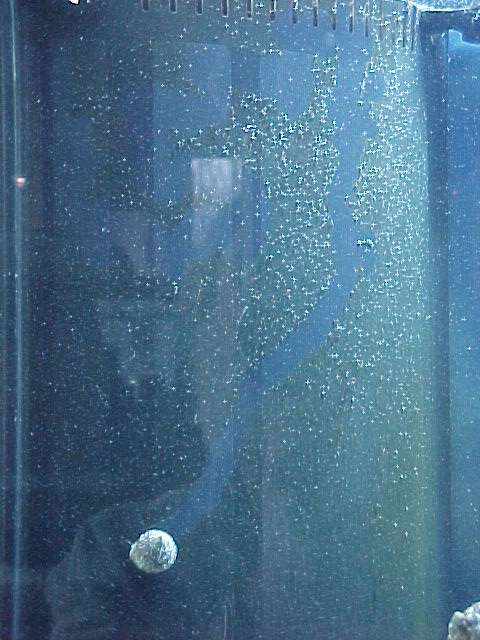Snails and Algae
Most of us would not consider Snails and Algae
to be all that interesting, and I guess that my writing about
them after all of the other topics is some indication of
agreement on my part. On the other hand...
Here you can see some of the kinds of algae
which appear spontaneously in the tank. I started out with bare
live rock and a few weeks later all kinds of algae were present.
Small "trees" appear, like those on the left. Films of
algal "goo" appear with bubbles trapped inside them,
like those in the center. And long strings of algal
"goo" form, like those on the right. Colors range from
green to rust to red to purple. It's all a normal part of the
tank biosphere, so long as there is not too much of it. I'm not
sure exactly what "too much" means in this context.
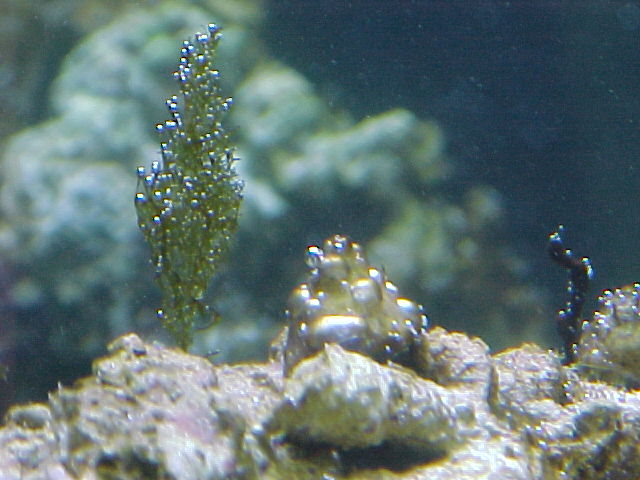
Here is a Turbo (or maybe it is an Astra)
snail, taken with the Mavica, through the glass. He is actually
about 3/4 of an inch long, but with this highly magnified
picture, you can even see his "teeth". The antennae are
also obvious. Without a snail's help, the algae must be rubbed
off of the glass with plastic "wool", so his teeth are
formidable.
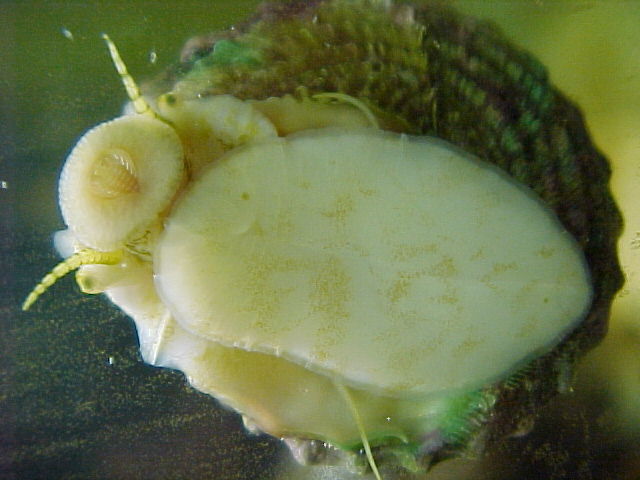
Here is what a snail can do to an algae covered
rock in a day or so. Eventually 10 of these snails ate almost all
of the algae from the initial "bloom", leaving bare
rock behind. All of the green you see is algae; all of the
"white" is bare rock.
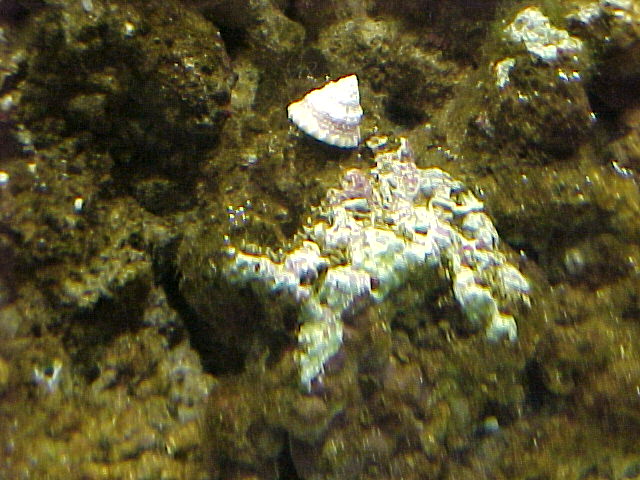
Here is a lone snail. Notice the
algae-generated bubble of oxygen atop his shell. You can just
make out his antennae to the lower right of his shell.
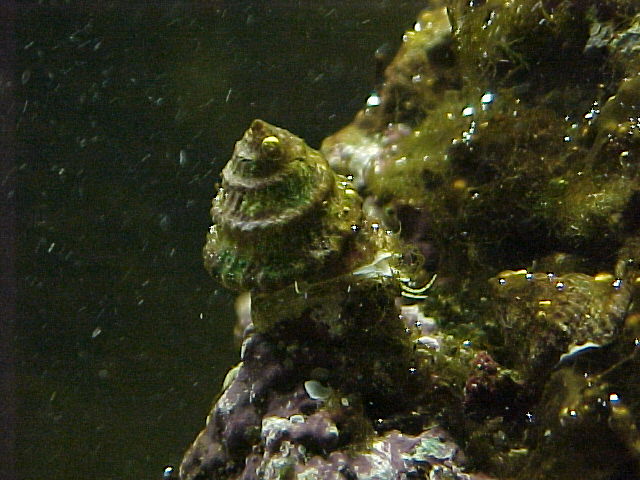
Another shot of a lone snail, this time with
antennae to the left. He is still covered with algae, but the
rocks are now more or less bare. The purples you see is encrusting
coraline algae, a sign of tank health. A strong current of water
(like from a
hand, or a turkey baster [an aquarist's right hand]) will strip
the mat of algae off of a surface like a snail shell. In the
"wild", these kinds of mats might be uncommon, due to
ocean currents. On occasion, the Sally Light Foot Crab will feast
on the algae on the snails' shells.
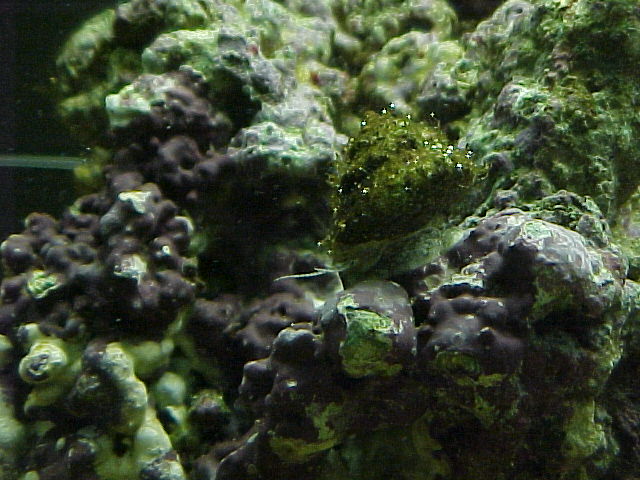
Eventually, a snail found its way to the black
plastic sheet which is my overflow partition. You can see the
trails he made as he ate algae for a day or two.
